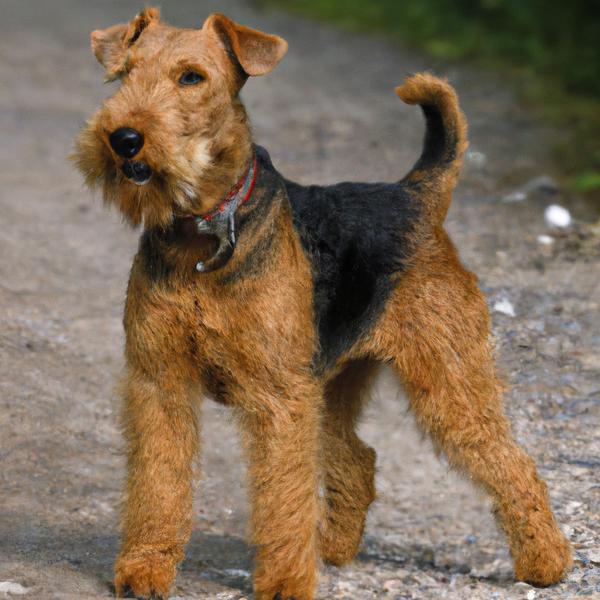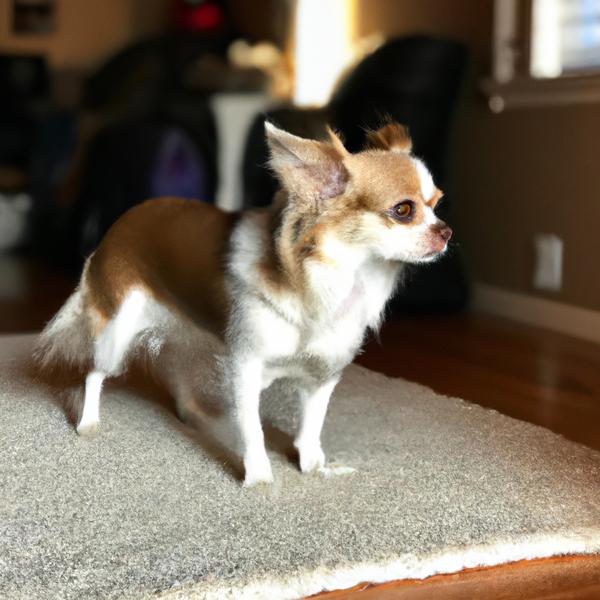Welsh Terrier vs. Chestie: Breed Differences and Similarities
Hypoallergenic
Are Welsh Terriers or Chesties hypoallergenic, or neither?
While no dogs are truly 100% hypoallergenic, Welsh Terriers are about as close as it gets, making them an ideal pet if you are an allergy sufferer.
Unfortunately, the Chestie is not hypoallergenic, making it not a good choice for a dog lover who suffers from pet allergies.
Temperament
What are the personalities of Welsh Terrier and Chestie dogs?
Alert
Intelligent
Independent
Friendly
Spirited
Loving
Independent
Alert
Courageous
Intelligent
Friendly
Affectionate
Quick
Devoted
Lively
Shedding Level
Do Welsh Terriers shed more than Chesties, or which breed sheds more, Welsh Terriers or Chesties?
Welsh Terrier or Chestie will shed a negligible amount of hair. Some owners say that they do not shed, but that is not true. But the amount of shedding can be rather light than other dog breeds. If you do not want to deal with the hairs flying around in your home, then this breed is a perfect choice for you.
Watchdog Ability
Which dog breed makes a better watchdog, the Welsh Terrier or Chestie?
Welsh Terriers are decent watchdogs - they'll alert their owner if something seems amiss.
Avoid Chesties as watchdogs - they're not effective.
Origin
What is the origin of Welsh Terrier and Chestie dog breeds?
Wales
United States
Ancestry
What are the origins of Welsh Terrier and Chestie breeds?
old english black and tan terrier
Chihuahua and West Highland White Terrier
Breed recognition
Which kennel clubs recognize/register Welsh Terrier and Chestie?
American Canine Registry
American Kennel Club
America's Pet Registry
Canadian Kennel Club
Dog Registry of America Inc.
Federation Cynologique Internationale
Kennel Club of Great Britain
North American Purebred Registry, Inc.
American Canine Association, Inc.
Continental Kennel Club
National Kennel Club
New Zealand Kennel Club
United Kennel Club
ACHC = American Canine Hybrid Club
DDKC = Designer Dogs Kennel Club
DRA = Dog Registry of America, Inc.
IDCR = International Designer Canine Registry®
Date of Birth
When were Welsh Terrier and Chestie breeds first developed?
1700s
Unknown
Eye Color Possibilites
What are the eye colors of Welsh Terrier and Chestie dogs?
Brown
Brown
Nose Color Possibilites
What are the natural nose colors of Welsh Terrier and Chestie?
Black
Black
Coat Color Possibilites
What are the natural colors of the coat for Welsh Terrier and Chestie breeds?
Black
Brown
Cream
Brown
Black
Fawn
White
Coat Length
What is the typical coat length for Welsh Terrier and Chestie breeds?
The coat of Welsh Terrier and Chestie dogs falls in the medium-length category.
Coat Density
What is the density of the coat of Welsh Terrier and Chestie?
Coat Texture
What is the hair texture of Welsh Terrier and Chestie?
Wiry
Litter Size
What is the usual litter size for Welsh Terrier and Chestie?
A Welsh Terrier can have a litter of 10-14 puppies on average. However, it's worth noting that the size of the litters can vary greatly. Factors that can influence litter size include the health of the mother, breeding history, and genetics.
A Chestie can have a litter of 2-5 puppies on average. However, it's worth noting that the size of the litters can vary greatly. Factors that can influence litter size include the health of the mother, breeding history, and genetics.
Adaptability
Welsh Terrier and Chesties are known for their adaptability and versatility. They are capable of adapting well to a wide range of lifestyle changes and living environments, making them great companions for families and individuals of all lifestyles.
Health Issues
Between Welsh Terrier and Chestie, which breed is more prone to health problems?
Welsh Terriers are susceptible to health issues like all breeds, so it's important to monitor their health and seek veterinary care when needed.
The Chestie breed is generally very healthy, requiring minimal vet visits. Still, it's important to keep an eye on their health and seek veterinary care when needed.
Major Concerns
What are the major health concerns for Welsh Terrier and Chestie breeds?
Usually A Very Healthy Breed
Legg-Calve-Perthes Disease
Collapsed Trachea
Minor Concerns
What minor health issues should be kept in mind when owning Welsh Terrier and Chestie?
Cataracts
Glaucoma
Epilepsy
Lens Luxation
Keratoconjunctivitis Sicca
Deafness
Cherry Eye
Occasional Tests
What occasional tests are recommended for Welsh Terrier and Chestie breeds?
Eye
Blood Test
Heart
Eye Examination
Physical Examination
X-Rays
Fluorescein Test
Blood Tests
General Physical Examination
Blood Chemistry
Energy
How do the energy levels of Welsh Terriers and Chesties compare?
Welsh Terriers thrive on an active lifestyle due to their high-energy nature.
Chesties are a good choice for a low-key lifestyle due to their low energy levels.
Social Needs
Welsh Terrier vs Chestie social needs comparison
Welsh Terrier has average social needs and is less independent than other breeds.
Chestie has very high social needs and requires regular mental and physical stimulation, a job or purpose, and companionship.
Exercise Needed
Welsh Terrier vs Chestie exercise need comparison.
The Welsh Terrier and Chestie breeds need significant physical activity to maintain a healthy lifestyle. They are well-suited for those who lead an active lifestyle and enjoy activities such as running, hiking, or other outdoor pursuits.
Sleeping Need
Which of the two sleeps the most/least: Welsh Terrier or Chestie?
Welsh Terriers are active and require sufficient sleep to stay healthy.
Chesties have moderate energy levels and typical sleep patterns of 12-14 hours per day.
Tendency to Bark
Do Welsh Terriers or Chesties bark more/less frequently?
Welsh Terrier dogs bark and howl frequently and are not recommended for quiet homes.
The Chestie is a vocal breed that frequently barks and howls, and may not be suitable for those seeking a quiet companion.
Mouthiness
Mouthiness Comparison: Welsh Terrier vs Chestie?
Roaming urge
Welsh Terrier vs Labrador: Running away tendency?
Prey Drive
Welsh Terrier or Chestie - which breed has a higher level of prey drive?
Past times
What are some enjoyable activities and ways to keep Welsh Terrier and Chestie entertained?
Walks in the pa
Walks, Road trip, Fetch, Hike, Training, Tug-of-war, Run, Watching tv, Walking, Tug of war, Running
Activity Level
Which breed has higher energy, Welsh Terriers or Chesties?
Both Welsh Terrier and Chestie are medium-energy dogs that enjoy socializing and playing with other dogs. They may engage in casual or sustained games of chase, and occasionally have bursts of barking or racing around the house.
Tolerance of being left alone
Walks per Week
How many miles should Welsh Terrier or Chestie walk each week?
There's really no limit to how far you walk your dog as long as they're comfortable. For Welsh Terrier, it's at least 7 miles / week. Just remember to build distance and stamina gradually over time.
There's really no limit to how far you walk your dog as long as they're comfortable. For Chestie, it's at least 8 miles / week. Just remember to build distance and stamina gradually over time.
Activity per Day
Do Welsh Terriers or Chesties require more exercise?
Both Welsh Terrier and Chestie typically require a minimum of 30 minutes of exercise each day. The exercise can be spread throughout the day and may involve high-energy activities like walking, running, and playing.
Grooming
Which breed is easier to maintain in terms of grooming, Welsh Terriers or Chesties?
Welsh Terriers require significant grooming, including regular trims and professional grooming assistance to maintain their coat. They may also require frequent bathing to keep their coat and skin healthy.
The Chestie requires an average amount of grooming compared to other breeds.
Brushing Frequency
What is the recommended brushing frequency for Welsh Terrier and Chestie dogs?
Welsh Terrier and Chestie should be brushed at least once a week. Of course, you can give them more frequent brushes if you find that they are still shedding a lot.
Brushing Tools
What brushing tools are used for Welsh Terriers and Chesties?
Slicker Brush
Comb
Deshedder
Nail Clipper
Pin Brush
Slicker Brush
Nail Clipper
Cups
How much food should be given to Welsh Terrier or Chestie in cups?
For an average 17-22 pound (8 - 10 kg) Welsh Terrier feed 1.8 cups daily. But, keep in mind, the amount you feed is going to be dependent on the quality of the food you are feeding.
For an average 5-10 pound (2 - 5 kg) Chestie feed 1 cups daily. But, keep in mind, the amount you feed is going to be dependent on the quality of the food you are feeding.
Daily Cost
Which breed has a higher daily cost, Welsh Terrier or Chestie?
The average cost of a Welsh Terrier is somewhere $1.70 - $2.00 per day.
The average cost of a Chestie is somewhere $1.00 - $1.40 per day.
Monthly Cost
Which breed has a higher monthly cost, Welsh Terrier or Chestie?
The average per month expenses of a Welsh Terrier is between $48 - $63. This makes an average of $576 - $756 per year. It will be on the higher side when the dog is still small because it will need more frequent visits to the vet, shots.
The average per month expenses of a Chestie is between $28 - $42. This makes an average of $336 - $504 per year. It will be on the higher side when the dog is still small because it will need more frequent visits to the vet, shots.
Intelligence
Comparing Intelligence: Welsh Terriers vs Chesties
Welsh Terriers are average in obedience intelligence but have a high IQ and may cause trouble if left unsupervised.
Chestie has below average obedience intelligence, but they excel in understanding human emotions.
Sensitivity Level
How do Welsh Terrier and Chestie compare in sensitivity?
Welsh Terriers have average emotions and adapt well to different situations.
This breed is sensitive to its environment and best suited for patient and understanding families with a consistent routine.
Affection Dependance
Which is the more affectionate dog breed: Welsh Terrier vs Chestie?
Apartment Friendly
Which breed is more apartment-friendly: Welsh Terrier or Chestie?
Welsh Terrier and Chestie are apartment-friendly dog breeds. They can do perfectly well in apartments providing they are sufficiently exercised and taken out and about as part of their owner's daily lifestyle.
Child Friendly
Do Welsh Terriers or Chesties have a friendlier temperament towards children?
Welsh Terriers are good with kids if socialized and trained from a young age.
Chesties have an average level of friendliness towards children.
Senior-friendly
Which dog is more suitable as a pet for the elderly - Welsh Terrier or Chestie?
Cat Friendly
Do Welsh Terrier or Chestie breeds have a better compatibility with cats?
Welsh Terriers are not cat friendly.
Chesties are good with cats, but early training is needed to prevent chasing behavior.
Dog Friendly
Which breed is more sociable with other dogs: Welsh Terrier or Chestie?
Welsh Terriers are less friendly towards other dogs, but can improve with socialization.
Chesties are friendly and active companions, and can be good family pets, though their friendliness towards other dogs may vary.
Pet friendly
How do Welsh Terrier or Chestie dogs interact with other pets?
Stranger Friendly
Which breed is more friendly with strangers: Welsh Terrier or Chestie?
Welsh Terriers are averagely friendly around strangers but benefit from early socialisation.
Chesties are friendly but may bark at strangers, and training is easy due to their intelligence.
Playfulness
Which breed is more playful between Welsh Terrier and Chestie?
Welsh Terrier and Chestie are playful dogs. So, no matter how busy the day may get, the best thing you can do for Welsh Terrier and Chestie is to make time each day to play. It can be as little as 15-20 minutes, and it will mean the world to them.
Trainability
How do the trainability levels of Welsh Terriers and Chesties compare?
Welsh Terrier and Chestie dogs are known for their ease of training and ability to learn quickly, making them a popular choice for pet owners and trainers alike.
Compare Welsh Terrier with other breeds
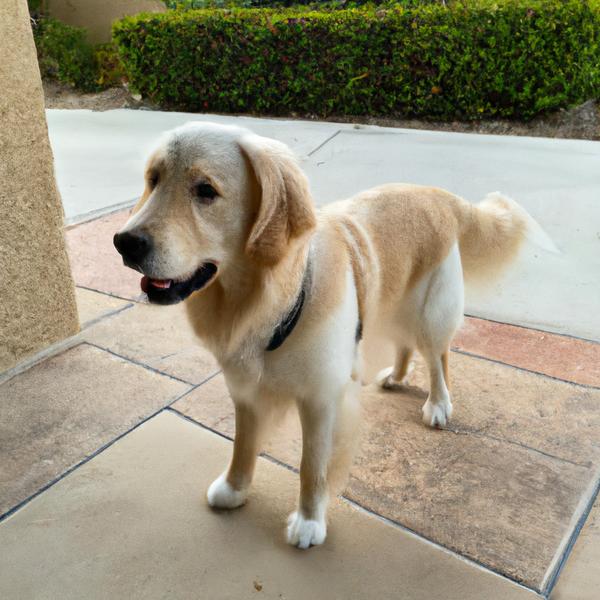
Petite Golden Retriever
Welsh Terrier vs Petite Golden Retriever
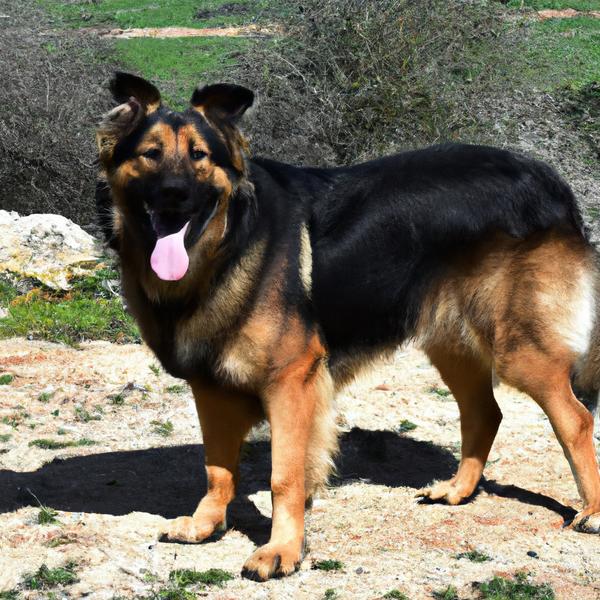
Saint Shepherd
Welsh Terrier vs Saint Shepherd
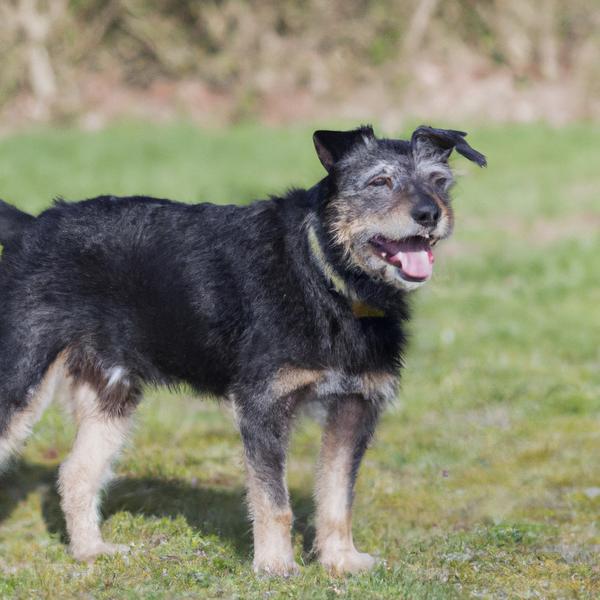
Brusston
Welsh Terrier vs Brusston
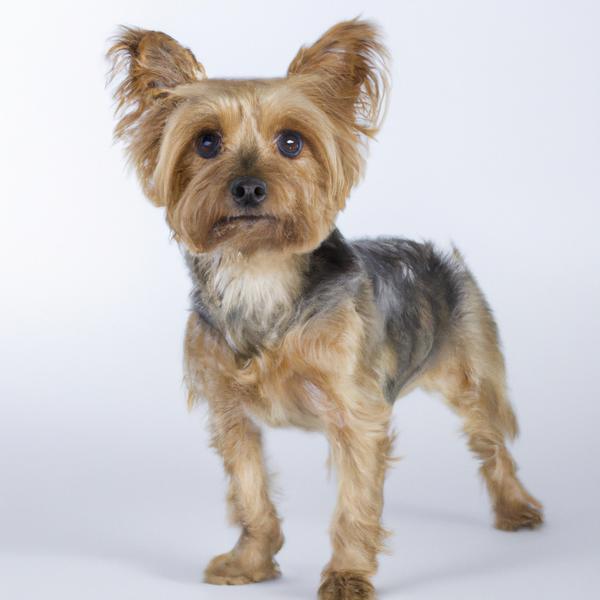
Torkie
Welsh Terrier vs Torkie
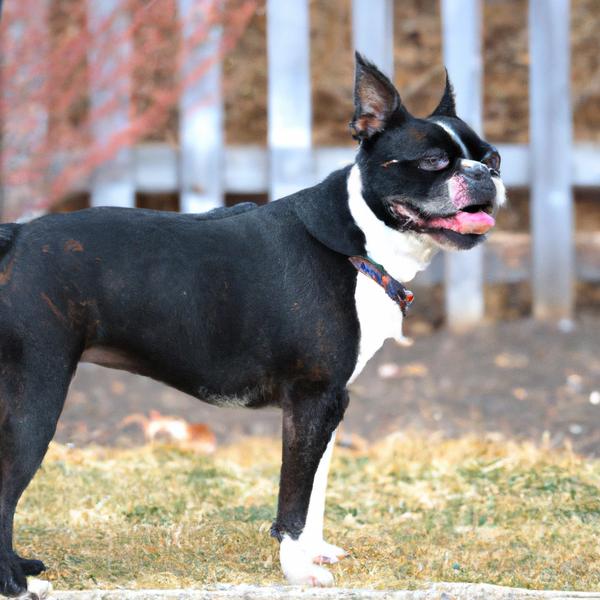
Bostie
Welsh Terrier vs Bostie
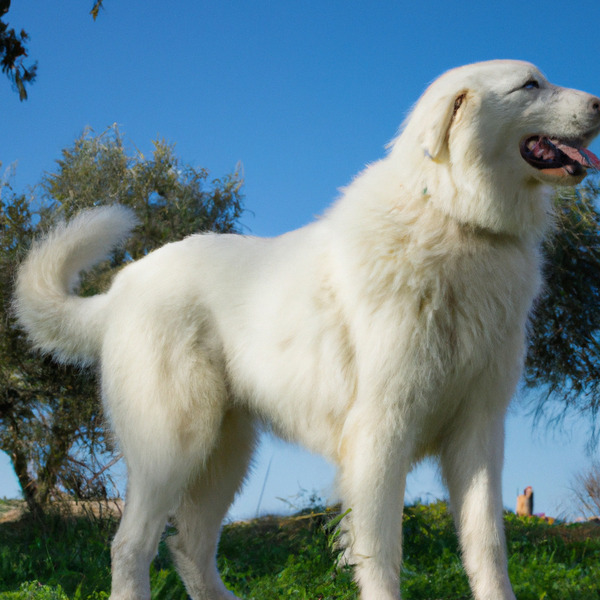
Maremma Sheepdog
Welsh Terrier vs Maremma Sheepdog

Golden Dox
Welsh Terrier vs Golden Dox
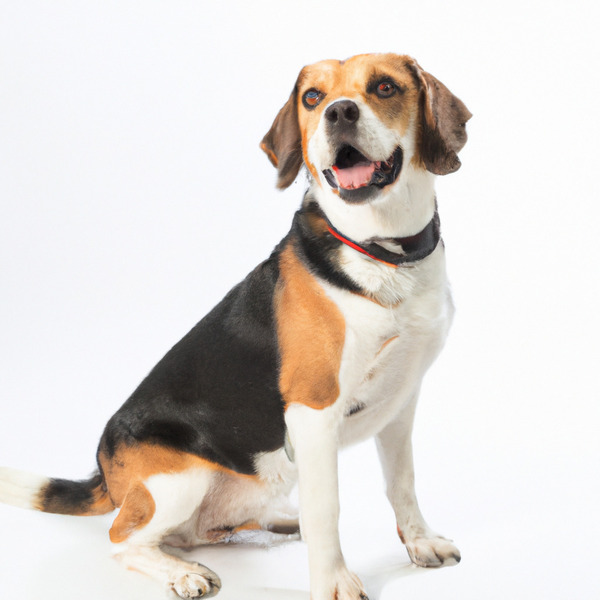
Beaglier
Welsh Terrier vs Beaglier
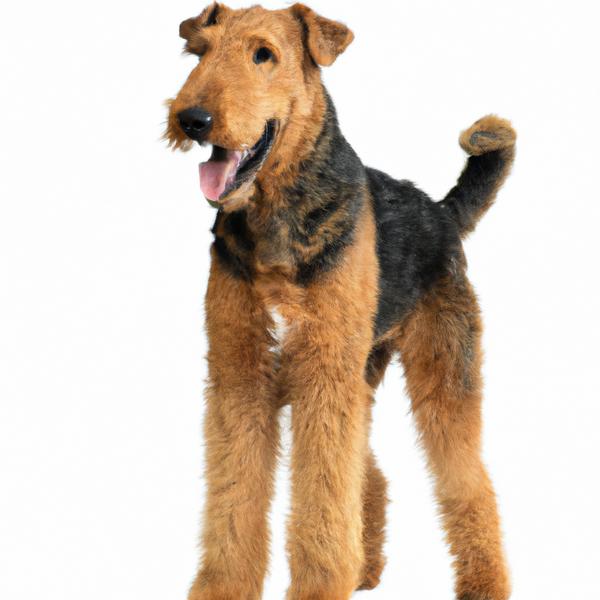
Airedale Shepherd
Welsh Terrier vs Airedale Shepherd
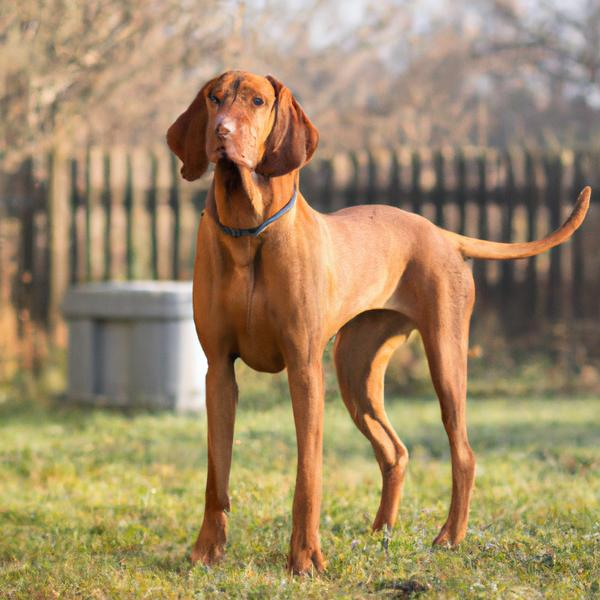
Transylvizsla Hound
Welsh Terrier vs Transylvizsla Hound
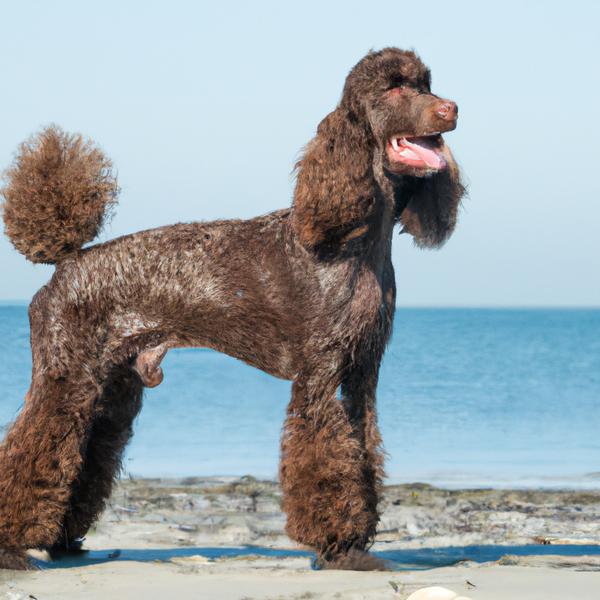
Irish Water Spaniel
Welsh Terrier vs Irish Water Spaniel

Wire Fox Beagle
Welsh Terrier vs Wire Fox Beagle
